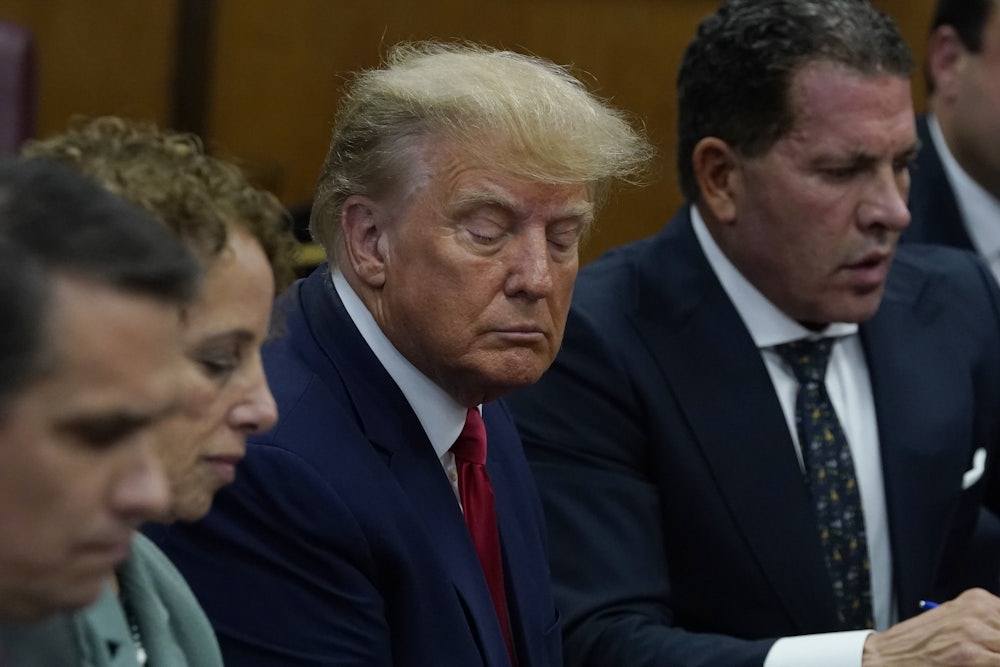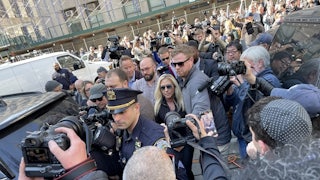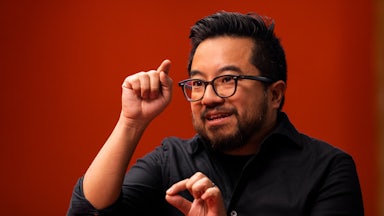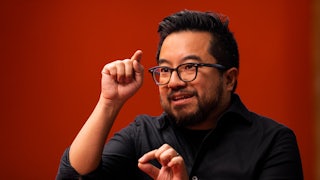A still-enduring principle of drama of all kinds was articulated by the Russian playwright Anton Chekhov in 1889. The dictum states, in effect, that if there is a gun on the stage in the first act, it must go off in the second act.
Donald Trump is undoubtedly more familiar with bum checks than Chekhov. But Trump, far more than any other political figure, is governed by the rules of drama. No one watches a Trump speech looking for eloquence, cogent policy analysis, or compelling rational argument. From the moment Trump launched his 2015 presidential campaign by excoriating a mythical army of Mexican rapists crossing the border, he has reveled in the drama he can create with incendiary words and a microphone.
Surprise is another aspect of dramatic tension. And in Chekhovian terms, it isn’t enough for the character who brandishes the gun in the first act to then shoot the very same person he threatened in the second act. But that is precisely the problem now facing the indicted ex-president. All the threats that Trump has been railing about for months—and in some cases years—are finally and predictably coming to fruition. As Trump declared last November in announcing his bid for another term in the White House, “Anyone who truly seeks to take on this rigged and corrupt system will be faced with a storm of fire that only a few could understand.”
Now the fire next time is finally here—and it is anti-climactic.
What is more predictable than a criminal defendant, just hours after his arraignment, railing about the unfairness of it all? Of course, most people facing a felony indictment don’t get rapturous cable TV coverage for their grievances. But there was little that Trump said in his Mar-a-Lago monologue last week that would surprise anyone who regularly watches cop shows on television.
He went after Alvin Bragg, the Manhattan district attorney, as a “radical left, George Soros–backed prosecutor.” OK, your standard TV show perp probably wouldn’t have an animus toward the 92-year-old Soros, but he certainly would have shouted about the DA. In a similar fashion—as part of his self-portrayal as the most maligned figure in 2,000 years—Trump attacked the presiding judge, Juan Merchan, as biased. Whoa, that’s an original complaint. Most criminal defendants worried about the slammer, of course, believe that the judge in their case is only interested in impartial justice.
Adding to the predictability of his ad hominem attacks, Trump is also running out of new ways to describe his legal plight. “Witch hunt,” which was once a powerful response to the Red-scare tactics of Joe McCarthy, has been repeated so often by Trump dating back to his first days in the White House that it now has the emotional power of the words “parking ticket.”
So Trump, always sensitive to the emotional needs of his acolytes, upped the rhetorical ante during his Waco, Texas, rally at the end of March. Claiming that Joe Biden was responsible for everything that Soros missed, Trump thundered, “The Biden regime’s weaponization of law enforcement against their political opponent is something straight out of the Stalinist Russia horror show. We go, Stalinist Russia.” Just in case the Gulag wasn’t enough, Trump added, “You go back to Communist China or look at a third world banana republic.... Between our borders, our elections, and the weaponization of law enforcement, banana republic.” Maybe Trump fashion mavens such as Melania and Ivanka can explain what the defrocked president has against the Banana Republic clothing chain.
If Trump is now implicitly likening his plight to that of Nobel Prize–winning imprisoned novelist Aleksandr Solzhenitsyn, what does the Indicted One do the next time he is charged? Would an indictment by Fulton County District Attorney Fani Willis surrounding Trump’s heavy-handed attempts to tamper with the 2020 Georgia vote count prompt the ex-president to play the Adolf Hitler card? Or is the 2024 GOP front-runner saving Nazi Germany for his first federal indictment?
Trump has always portrayed himself as the victim of globe-girdling conspiracies. But the victims of these diabolical plots, until recently, were his loyal followers as well as Trump personally. In his 2020 speech accepting the Republican nomination, Trump triumphantly declared, “Together we have ended the rule of the failed political class, and they are desperate to get their power back by any means necessary.”
Once the pivotal word for Trump was “together.” But now as the legal cordon grows tighter, it has become “Trump-hating,” which he repeated in his Mar-a-Lago blast at Judge Merchan and his family.
Trump should remember that self-pitying laments about legal troubles are never audience pleasers. Even Lenny Bruce lost the thread of his humor amid a sea of obscenity arrests. The only thing more soporific than Trump ranting about election conspiracies was his claim at Mar-a-Lago that his postelection threats to Brad Raffensperger, the Georgia secretary of state, represented “an absolutely perfect phone call, even more perfect than the one I made with the president of Ukraine.” A bit more perfection like that and Trump will have to spend all of 2024 glowering in courtrooms from Manhattan to Atlanta.
Boring may be an even more frightening word for Trump than bankruptcy. But while it is not yet reflected in the GOP presidential polls, there is a risk that Trump becomes tedious in his legal self-absorption. Addressing the “Stop the Steal” incendiaries on January 6, 2021, Trump thundered, “They try to demean everybody having to do with us.” Back then, it was “us” and not “me” for Trump on the stump.
But the 74 million Americans who voted Republican in 2020 didn’t authorize hush-money payments to a porn star. That was Donald J. Trump on his own. And sooner or later, Republicans should learn that there’s no “us” in indicted.






